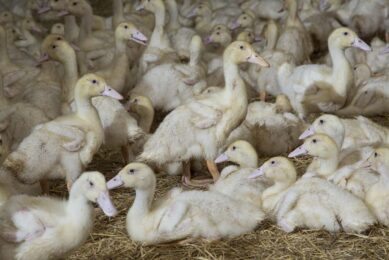Iceland: Keeping bird flu at bay
The bird flu has been found in Sweden and the H5 virus has been detected in Denmark. Is an outbreak of the H5N1 virus in Iceland imminent?
“This is a big question,†says veterinarian Gunnar Örn Gudmundsson, from the Agricultural Authority of Iceland. “We have the luck to live on an isolated island in the north Atlantic. Our chicken farms are isolated and they have good quality controls so that is going to help us. This is the most regulated food in Iceland,†Gunnar Örn adds. “Water for the birds is treated with ultraviolet light before it reaches the birds’ mouths. “The water they drink is cleaner than our water.â€
Currently, Icelandic standards are imported from Norway, but they plan to adopt hygiene rules of the European Union within a five-to-ten year period. The vets inspecting Iceland’s poultry farms are the country’s first line of defence against the bird flu. Before they’re slaughtered, the chickens are tested four times for salmonella and Campylobacter.
Not only the birds, but their housing is also thoroughly inspected. Holes even the size of a 1 Euro coin are sealed to prevent mice from entering. While mice spread disease, wild birds are a bigger worry. The migratory birds that reach Iceland’s shores arrive from as far away as Morocco, France and Spain; but the swans and geese flying north from the UK present the gravest danger.
Not taking any chances, most poultry farmers have nets around the ventilation stacks on the roofs to keep wild birds from entering the chicken coops. So far, all shore birds tested have come back negative.
Join 31,000+ subscribers
Subscribe to our newsletter to stay updated about all the need-to-know content in the poultry sector, three times a week. Beheer
Beheer








 WP Admin
WP Admin  Bewerk bericht
Bewerk bericht